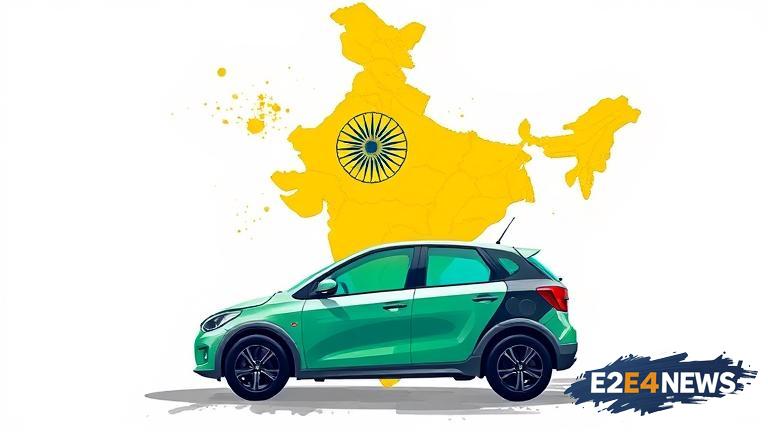The Indian government has announced a comprehensive plan to promote the adoption of electric vehicles (EVs) in the country. The plan includes a range of incentives and initiatives to encourage the use of EVs, including tax exemptions, subsidies, and investment in charging infrastructure. The government aims to have at least 30% of new vehicle sales be electric by 2030. To achieve this goal, the government will provide subsidies to manufacturers to encourage the production of EVs. Additionally, the government will invest in the development of charging infrastructure, including the installation of charging stations along highways and in cities. The plan also includes measures to promote the use of EVs in public transportation, such as buses and taxis. The government will provide incentives to state governments to adopt EVs for public transportation. The plan is expected to have a significant impact on the environment, as EVs produce zero emissions and can help reduce air pollution in cities. The government has also announced plans to develop a network of charging stations along highways, which will make it easier for people to charge their vehicles on long trips. The plan is part of the government’s larger effort to reduce the country’s dependence on fossil fuels and promote the use of renewable energy. The government has set a target of generating 40% of the country’s electricity from non-fossil fuels by 2030. The plan has been welcomed by the automotive industry, which sees it as a major opportunity for growth. Several major automakers have already announced plans to launch EVs in the Indian market. The plan is also expected to create new job opportunities in the EV sector, including in manufacturing, sales, and maintenance. The government has announced plans to provide training and support to workers in the EV sector. The plan is part of the government’s larger effort to promote economic growth and development. The government has announced plans to invest in a range of sectors, including infrastructure, manufacturing, and renewable energy. The plan is expected to have a significant impact on the country’s economy, as it will create new job opportunities and stimulate growth. The government has also announced plans to promote the use of EVs in rural areas, where they can help reduce emissions and improve air quality. The plan includes measures to provide subsidies to farmers to adopt EVs for agricultural use. The government has also announced plans to develop a network of charging stations in rural areas, which will make it easier for people to charge their vehicles. The plan is part of the government’s larger effort to promote rural development and reduce poverty. The government has set a target of providing electricity to all households in the country by 2025. The plan is expected to have a significant impact on the country’s energy sector, as it will promote the use of renewable energy and reduce dependence on fossil fuels.
